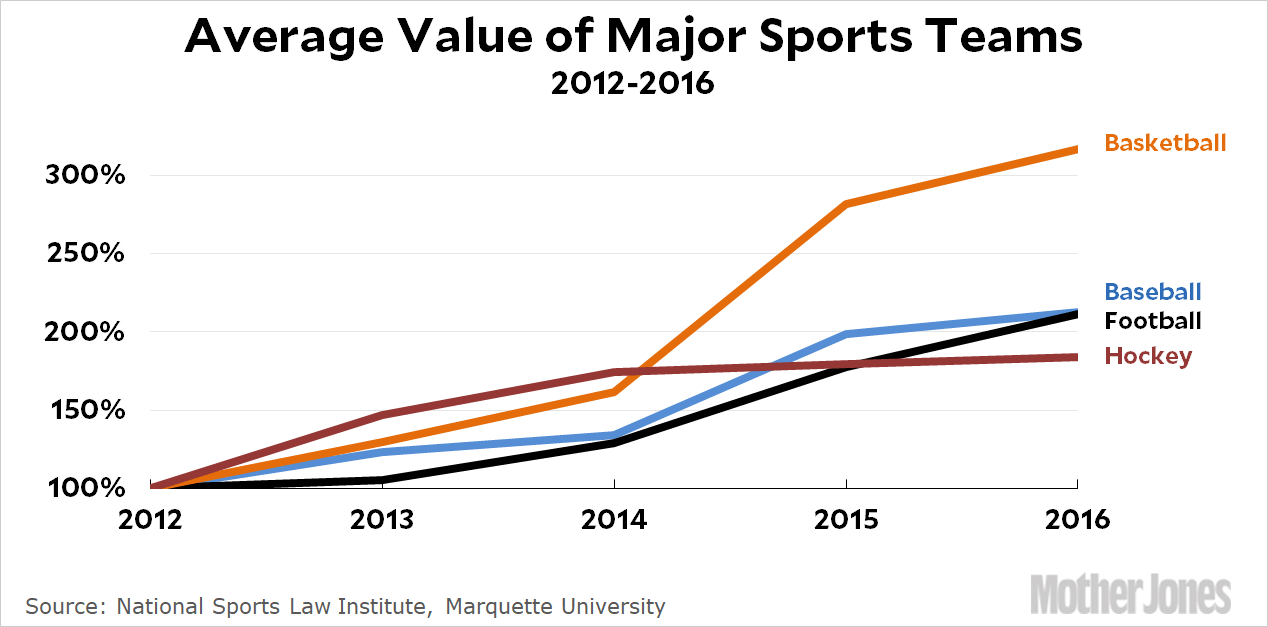I should say right off that I don’t know the answer to this question. It’s been an issue for the past couple of years, gaining momentum in 2016 when Colin Kaepernick’s protest coincided with the tapering off of TV ratings for the NFL. The problem is that ratings are a terrible way to judge league performance. Maybe it’s boring games. Maybe it’s weak teams in big markets. Who knows? It’s especially a problem because ratings are down for all the major sports leagues. Ratings are also down for ESPN. Hell, ratings are down for TV, period.
I was pondering this a couple of days ago, trying to think of a better way to measure the NFL’s popularity. I gave up on ratings pretty quickly. There’s no question that the league and the owners care about ratings, but it’s a rat’s nest. So what better measures exist?
A reasonable proxy might be the average value of a team franchise. This has issues too—small sample size, contested estimates, and the propensity of billionaires to buy teams for noneconomic reasons—but it’s still probably not bad. Any good capitalist recognizes that price signals incorporate all information about the value of a product, and that should work for sports teams too. The National Sports Law Institute at Marquette University provides estimates since 2000, but we’re mostly interested in more recent valuations. So here they are for the past five years:

Basketball’s impressive performance is mostly due to Steve Ballmer’s astonishing $2 billion purchase of the LA Clippers in 2014 after Donald Sterling was forced out of the league following the leak of racist remarks.
Baseball and football have roughly the same performance, with average team value more than doubling in the past five years. Hockey brings up the rear.
If this is meaningful, it suggests that the NFL is doing fine. Team value has been rising pretty steadily, with no evident slowdown in the past couple of years. In terms of growth, they trail only the NBA, and not by that much if you discount the Ballmer outlier. Obviously this could change, and it’s plausible that inertia might keep team values high for a while even after ratings and popularity have peaked. Tentatively, though, I’d suggest the NFL hasn’t been hurt much by politics so far.


















